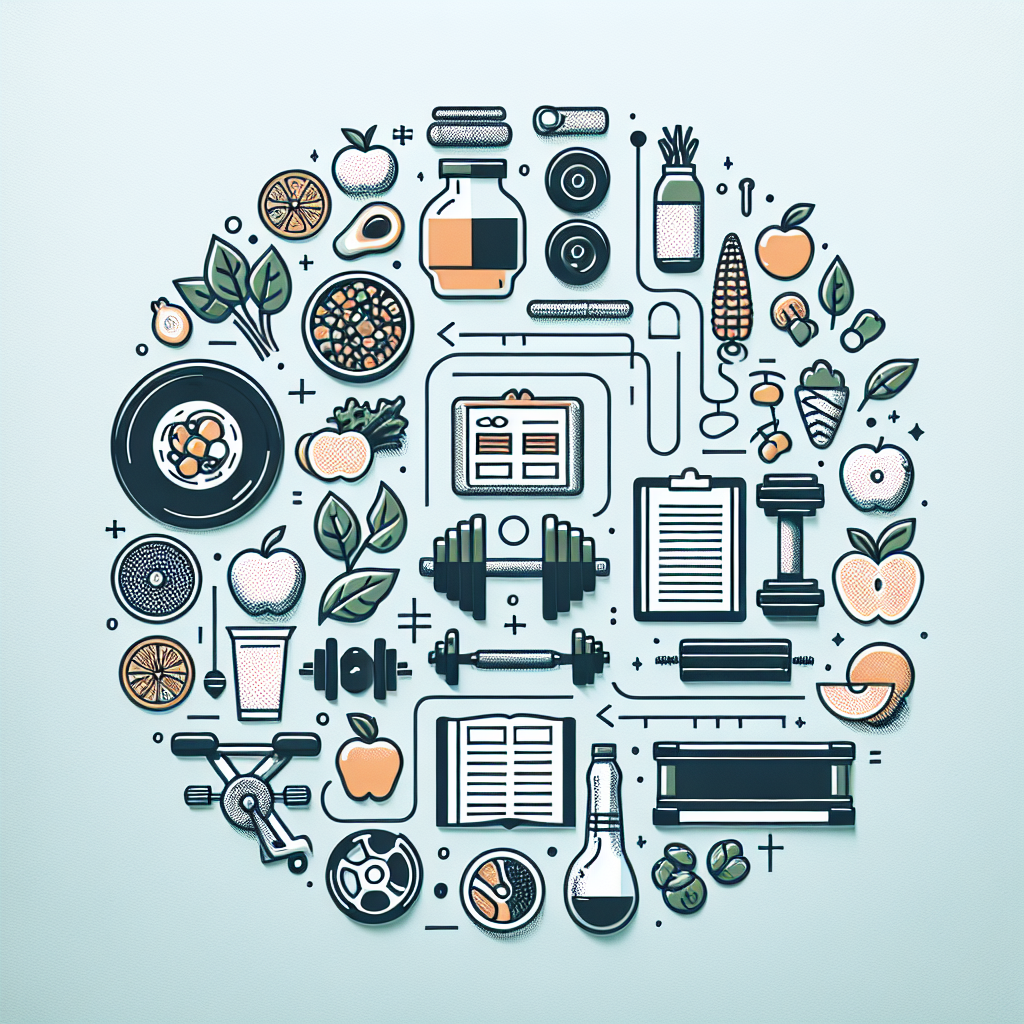
Nutrition Tips for Home Gym Athletes
Share
Nutrition Tips for Home Gym Athletes
For athletes who prefer their workouts at home, a dedicated nutrition plan is just as crucial as a well-structured exercise routine. Consistently fueling your body with the right nutrients can transform your journey, regardless of whether you’re just starting out or you own a fully-equipped setup. Dive into our essential home gym nutrition tips to boost your performance, aid in recovery, and see real results from your hard work.
Why Nutrition Matters for Home Athletes
Your home gym offers you comfort, privacy, and convenience, allowing you to train on your terms. However, without proper nutrition, you may quickly hit a plateau. Unlike commercial gyms that might spark a competitive edge or provide nutrition advice, home gym athletes need to become their own coaches and nutritionists. Efficient training and optimal recovery both hinge on tailored home gym nutrition tips.
Understand Your Training and Nutrition Goals
Nutrition isn’t a one-size-fits-all solution. Start by asking yourself:
- Are you aiming for weight loss, muscle gain, or improved endurance?
- How intensive and frequent are your workouts?
- Do you need special adjustments for medical conditions or dietary restrictions?
Once your goals are clear, you can shape your nutrition plan for maximum impact.
Macronutrient Basics for Home Training
All athletes, including those training at home, need a solid understanding of macronutrients:
- Protein: Essential for muscle repair and growth. Include lean meats, eggs, dairy, legumes, and plant-based proteins in your daily intake.
- Carbohydrates: Fuel for your workouts. Opt for whole grains, fruits, and vegetables, especially on training days.
- Fats: Vital for hormone production and energy. Incorporate healthy fats from sources such as avocados, nuts, seeds, olive oil, and fatty fish.
Balancing these nutrients can help maintain energy, fuel recovery, and promote muscle growth as you progress with your workouts.
Meal Timing: When to Eat for Best Results
Meal timing can significantly affect your performance and recovery:
- Pre-Workout: Have a snack that combines complex carbs and a moderate amount of protein 60-90 minutes before your session. For example, Greek yogurt with berries and a sprinkle of oats.
- Post-Workout: Within an hour of finishing, supply your muscles with protein (for repair) and carbs (for glycogen replenishment). A protein shake with a banana or chicken with brown rice are practical options.
Hydration: The Overlooked Essential
Dehydration can sap your strength faster than you think. Keep your water bottle handy during every workout and sip fluids regularly, even if you aren't sweating excessively at home. Aim for:
- At least 2-3 liters of water daily for active adults
- Electrolytes (via sports drinks or coconut water) if you engage in longer or more intense workouts
Smart Snacking for Sustained Energy
Smart snacks keep your energy steady for home workouts:
- Nut butter with apple slices or whole-grain toast
- Cottage cheese with pineapple
- Homemade protein balls
- Trail mix with unsalted nuts and dried fruit
Focus on snacks that offer both carbohydrates and protein without excess added sugar or fat.
Supplements: Do You Need Them?
While whole foods should form the foundation of your diet, certain supplements support home gym athletes:
- Whey or plant-based protein powder for muscle recovery
- Creatine monohydrate for strength and power
- Omega-3 fatty acids for inflammation support
- Multivitamins to fill nutritional gaps
Always consult a professional before beginning a new supplement regimen to match your specific needs.
Creating a Home Gym Nutrition Routine That Works
Consistency is vital. Here’s how to make these home gym nutrition tips part of your daily life:
- Plan your weekly menu to prevent unhealthy impulse choices.
- Batch-cook meals or prepare healthy snacks in advance to save time.
- Keep nutritious foods within reach—think fruit bowls, cut veggies, or pre-cooked proteins.
- Log your meals or use an app to monitor your macro and calorie intake, ensuring they align with your training volume and goals.
Over time, you’ll find even small, sustainable changes pay off the most.
Optimize Your Home Gym Setup for Nutrition and Performance
Your environment impacts your habits. For best results, design your workout space for both activity and quick nutrition access:
- Keep a mini-fridge stocked with water, ready-to-drink shakes, and easy snacks in your home gym area.
- Install shelves for supplements or shakers to stay organized.
- Keep a blender nearby for post-workout smoothies.
Upgrade Your Home Gym Equipment for Total Results
Fitness isn't just about nutrition—having the right equipment matters too. If you want the ultimate versatility in your workouts, consider investing in the Multifunction Home Gym Weight Training Workout Station White. This all-in-one machine supports a full range of upper and lower body exercises—so you can complement your nutrition plan with effective strength training, right at home. A top-tier setup will keep you motivated, committed, and ready to push your limits while practicing smart home gym nutrition tips.
Conclusion: Power Your Performance from Kitchen to Home Gym
Every home gym athlete deserves to see and feel the rewards of their dedication. By following these home gym nutrition tips, you’ll have the energy, strength, and recovery support to make every workout count. Combine smart eating with high-quality equipment, like the Multifunction Home Gym Weight Training Workout Station White, and your fitness transformation will be unstoppable—without ever leaving your house.
Meta description: Discover actionable home gym nutrition tips to fuel your workouts, boost recovery, and achieve results. Create your blueprint for home fitness success now.
